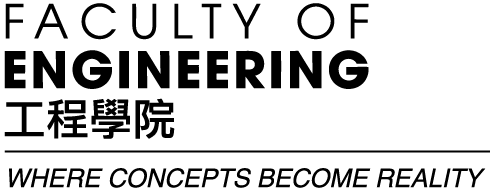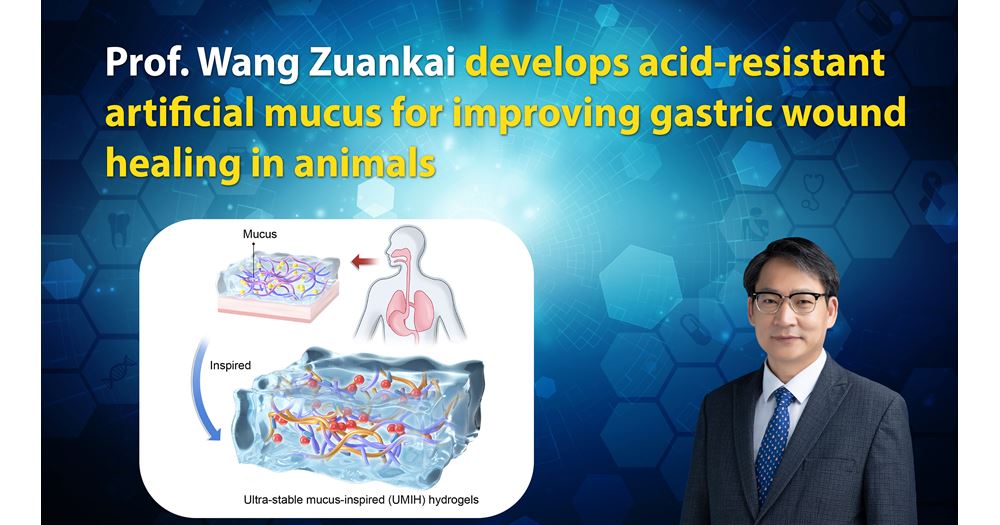A team of researchers and clinicians led by Prof. WANG Zuankai, Associate Vice President (Research and Innovation), Dean of Graduate School, Kuok Group Professor in Nature-Inspired Engineering and Chair Professor of the PolyU Department of Mechanical Engineering (ME), has developed an acid-resistant hydrogel called “ultrastable mucus-inspired hydrogel” (UMIH). This research has recently been published in Cell Press journal Cell Reports Physical Science, with Dr YANG Xiao, Postdoctoral Fellow of ME, as the first author, along with corresponding author, Dr CHAU Yeung Yeung, Research Associate of ME.
“UMIH has potential for treating gastroesophageal reflux, gastric ulcers, and post-surgical wound protection and can be combined with endoscopic delivery for minimally invasive therapy,” says first co-author LI Bei of Sichuan University. “In both rat and pig models, it not only sticks firmly but also helps wounds heal faster and better.”
Prof. WANG envisions, “UMIH represents a major step forward in biomaterials for gastrointestinal repair. Its strong adhesion, durability, and scalable manufacturing process position it as a promising platform for clinical translation.”
In lab tests under acidic conditions (pH2), UMIH showed 15x stronger adhesive abilities compared to aluminum phosphate gel (APG), a clinically approved mucosal protectant and antacid that is used to manage gastric ulcers and acid reflux. And whereas APG degraded completely after 3 days, UMIH still maintained 50% of its structural integrity after 7 days in acidic conditions. UMIH was not associated with any toxicity issues in lab-grown gastrointestinal cells. It also inhibited the growth of E. coli and S. aureus bacteria, indicating that it has antimicrobial potential.
Dr YANG remarks, “UMIH achieves an adhesion strength 15 times higher than that of clinically approved materials in acidic conditions. It remains stable for 7 days and shows excellent biocompatibility and significant tissue repair capability.”
In pig and rat models of esophageal injury, UMIH adhered tightly to wounds and improved healing compared to control animals and animals treated with APG. UMIH was associated with less tissue damage, reduced inflammation, and it promoted the growth of new blood vessels, which is essential for healing.
This research was supported by funding from the Innovation and Technology Commission of the Hong Kong Special Administrative Region Government, the National Natural Science Foundation of China, the Science and Technology Planning Project of Guangdong Province, the Science, Technology and Innovation Commission of Shenzhen, and the Shenzhen Medical Research Fund.
You may also like








.jpg?bc=f1f1f1&h=325&w=620&rev=a234ed64563e49c6879fffc65701b11d&hash=075CE73ECF6C7D61122715F2EFACF78E)

